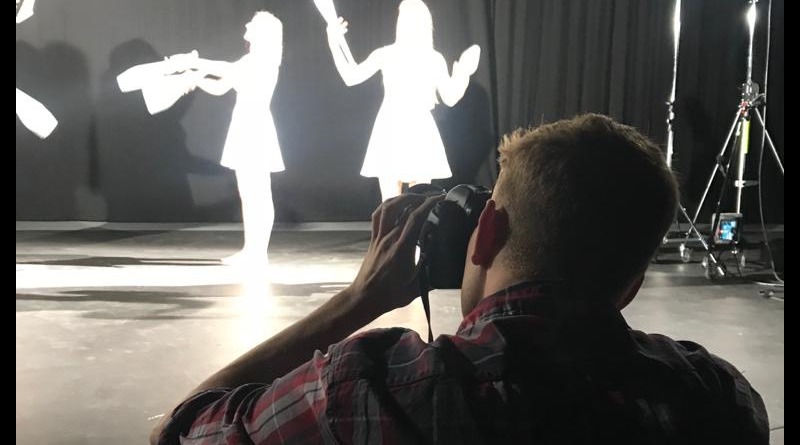Promoting Your Show with Your Circus Trailer –An Interview with Lukas Stelter
In the continuation of our short series about the making of circus trailers, we spoke with the founder of Promotion for Performers, Lukas Stelter.

Based in Berlin, Germany, Promotion for Performers is the whole ticket–providing content, strategic marketing consultancy and also producing videos, photoshoots, design and marketing campaigns for circus artists and companies. Stelter has been providing these services for the past 5 years, working for famous artists and well-known circuses and varieties like Zirkus Knie, Krystallpalast Leipizig and the Circus Festival Young Stage Basel.
He focuses his business on events because of his own extensive experience in the industry. After graduating from circus school, he became a diabolo performer for several years, performing with many circuses like Zirkus Knie. But when he recognized a need for the services he now provides, he decided to focus on that instead, starting with circus trailers and other video. Stelter describes himself as a one-man show, but occasionally calls on the assistance of qualified freelancers to help complete a bigger project.
Kim Campbell: What is the most important element of a circus trailer?
Lukas Stelter: I think it is consistency in all of the following aspects:
- Consistency of your act/show style – the circus trailer should represent your show style, so the viewer gets a realistic image of the show.
- Consistency of the music, the pictures, and the editing: in a good trailer these three things are working together and are going to catch the attention of the person who is watching the video and it stays in their mind.
- Consistency in who you want to target most (the message of the trailer should be consistent): for different target groups and releasing platform the style of a video should be different.
KC: How are circus trailers helpful to artists and circus companies? Do they really get more jobs because of them?
 LS: Circus companies and artists should not think that a trailer alone will get them a full house or a lot of bookings. But a good trailer will help them a lot in every step of their marketing! If artists/companies want to create awareness, a good trailer is one aspect that kickstarts the momentum of awareness and interest for them.
LS: Circus companies and artists should not think that a trailer alone will get them a full house or a lot of bookings. But a good trailer will help them a lot in every step of their marketing! If artists/companies want to create awareness, a good trailer is one aspect that kickstarts the momentum of awareness and interest for them.
If they want to introduce themselves to producers, agencies or other clients, a video is a great way to present yourself the best way in a short time. Agencies and producers get a ton of emails every day and a good video can make a difference between choosing to work with you or another artist/company. It makes you stand out and differentiates your brand.
KC: How can a company find a good trailer production team in their region?
LS: Ask circus friends for recommendations. You can try to find somebody over google, Facebook or Instagram, but the highest chance to find a good video producer for your needs is by recommendations of other artists/companies, which have worked with them before.
If you found a producer via recommendations or online, always check out the portfolio of the video producer. Has he/she already produced a video with stage lightning and do you like the videos?
To shoot videos of artists and shows with stage lightning is a different thing than to shoot product commercial videos for example. So ask if the person has done it before and if they know how to deal with shooting and editing show videos.
And last but not least, if you like the images, but maybe not the editing, consider asking for just shooting and find another person for the editing. The editor does not need to live in your area. Sometimes I am editing footage from clients from the U.S. It’s not a problem at all anymore in the digital age.
KC: How much should a trailer cost?
LS: It is not possible to say one number. It really depends on the size of the project. Questions I ask myself when creating the budget are:
- How many shooting days will it take?
- Do I need to rent special equipment for the client? (Special cameras for ultra-slow motion, special effects, etc.)
- How long is the final video?
- Is it a trailer for a whole show or just an act?
Just keep in mind: If you are asking a professional video producer because you want a professional video, it will not be for free and you need to spend some money on it! But it is better to spend more money one time on a professional and be happy with the video than to make a cheap video and not get any jobs with it.
KC: How much creative control does the company get about the setting and tone of the trailer?
 LS: That depends on the videographer and I can just speak for myself, but I always take care that the client gets a lot of creative control over the setting and tone of the trailer.
LS: That depends on the videographer and I can just speak for myself, but I always take care that the client gets a lot of creative control over the setting and tone of the trailer.
I do this in two ways: One, I take enough time to understand beforehand what my client’s goal is with the video, what kind of video the client wants, what he/she would like to see in his/her video and what they don’t want to see. Furthermore, a big aspect is which clients they want to reach with this video. The easiest way is to do it with a meeting or over the telephone.
Often the clients have a loose vision and an unclear picture of the result, so I map out possible ideas for the style of the video regarding their goals.
Together we discuss our ideas and make a plan. At this stage, it is a lot about what kind of feeling the video should carry and what tricks need to be in the video.
Later, I prepare my “shooting plan” alone, where I consider how to shoot the tricks and what to shoot to get the discussed result.
During the shoot, I try to have enough time to implement spontaneous ideas from myself and the client. Second, in the video editing, I prepare a first example for the client which is based on our meetings before the shoot.
Usually, this is already close to the final result. The client gives concrete feedback on it and I implement all of the changes they wish for. So I make sure the client will be happy with the result.
KC: What advice would you give to a new company that can’t afford to pay much for a trailer of their show? Do they still need one?
LS: If a new company cannot afford a professional videographer they could check if they have friends or know people who are starting with videography and which need projects for their portfolio.
Another option is to search for a videographer who has never done videos for shows or artists but who is super interested in it. This could be an option to get a video for less money. But keep in mind, that it may not look that professional.
If you have just a little budget, you can still try to find a friend with a DSLR Camera, let him watch a YouTube tutorial on how to set it up for video and just try to record a video from the total view. With a little budget, it is possible to hire an editor who is able to edit a decent video from just one total view using special effects and transitions.
If you really have zero budget, take your own short video and sit down on your computer and try to edit it on your own with the help of YouTube tutorials. The first steps are not so hard, and it’s fun.
KC: How important is social media these days for an artist of circus companies brand?
LS: From what I see regarding the use of social media for marketing, there is a lack of knowledge and willingness to invest resources to be present on the social media platforms.
From what I experienced I think varieties, companies, and festivals should be aware that social media can have a great impact on your brand awareness and sales and you should realize how important social media is for your employment potential.
Related content: Why You Need a Video Trailer for Your Circus Show– Advice from Double Take Cinematic Circus
All photos courtesy of Lukas Stelter
...Do you have a story to share? Submit your news story, article or press release.





